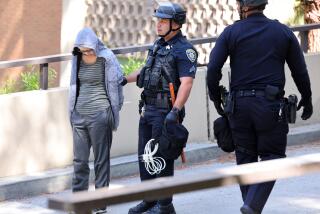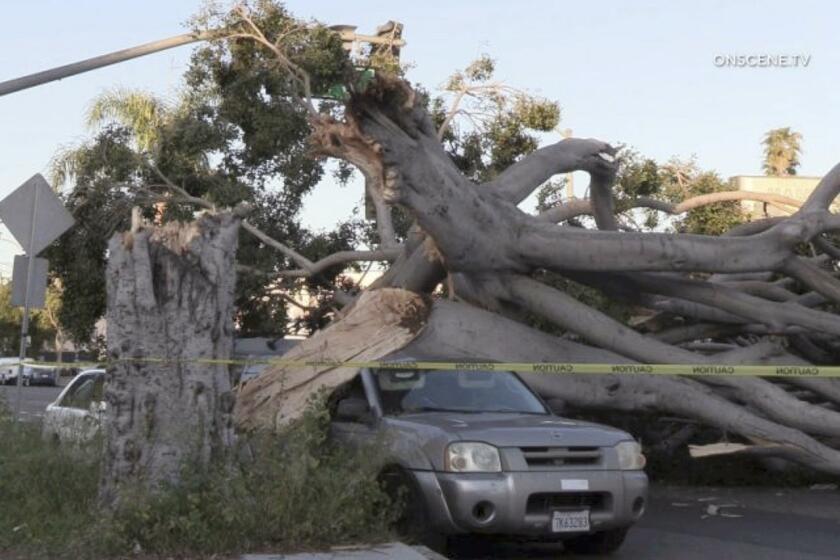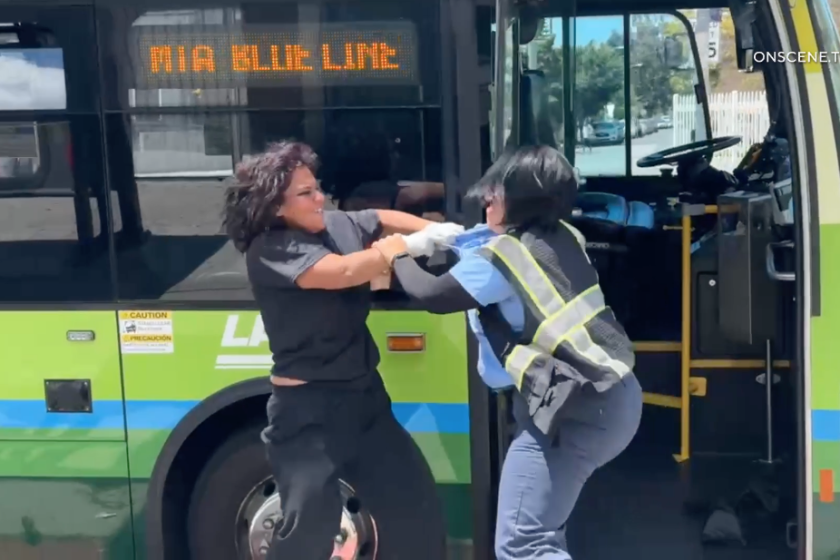Wilson Speeds Up Liquor Licensing Despite Cutbacks : Alcohol: DMV workers are being used to reduce the backlog of applications. MADD is outraged at move when law enforcement has been sliced.
Faced with complaints from liquor retailers, the Wilson Administration has assigned Department of Motor Vehicles employees to help process alcoholic beverage licenses and reduce a staggering backlog produced by funding shortages.
The shift of personnel has drawn fire from representatives of Mothers Against Drunk Drivers and some community organizations, who complain that the Department of Alcoholic Beverage Control is rushing to issue licenses when it has curtailed virtually all its law enforcement activities because of budget cuts.
They accuse ABC officials of focusing resources on the needs of business interests while ignoring problems addressed by the law enforcement branch of the agency, such as underage drinking and drunkenness in general.
“Our concern is that if there is more licensing and not any enforcement then there is a likelihood of more people being killed or harmed (by drunks),” said Kellie Mattson, chairwoman of MADD California. She said that MADD is not a “prohibition organization” and does not object to the issuance of alcoholic beverage licenses as long as there is a law enforcement arm to police liquor establishments.
But officials insisted that the state’s financial predicament left them with no choice.
Forced by revenue shortages to make steep emergency budget cuts, they said they decided to curtail law enforcement because police agencies can perform some of the same functions. “Licensing is an area no one else can do,” said Robert R. Pipkin Jr., assistant secretary for public affairs for the state’s Business, Transportation and Housing Agency, which oversees the Department of Motor Vehicles and ABC.
Yet he acknowledged that budget reductions in the department also had an unexpected impact on licensing and contributed to a massive backlog that requires businesses in Los Angeles and other urban areas to wait from six to eight months before their liquor permits are issued or transferred. In California, there are 73,000 licensed premises.
The problems stemmed, Pipkin said, from the department’s decision several months ago to advise employees that the emergency cuts would probably necessitate layoffs. Investigative and clerical employees, he said, quickly began to accept jobs in other state agencies that were not financed from the state’s general fund, which was particularly hard-hit by budget cuts.
Pipkin said within months the number of ABC employees was reduced by nearly half, with the greatest losses occurring in urban Southern California. The Long Beach office, where there were 11 investigators and five clerical workers, was left with two investigators and one clerical worker.
Usually, it would take about two months for an uncontested license to be issued, but after the exodus, Pipkin said, it would take longer than that just to get an appointment to file an application.
Initially, law enforcement investigators were transferred to licensing and 18 were moved temporarily from Northern to Southern California. But by mid-March, the statewide backlog had reached more than 4,000, he said.
Pipkin said officials, inundated with complaints, decided to temporarily transfer 35 DMV employees to ABC Southern California offices.
Pipkin said the state did not want to put up barriers to stop the creation of jobs. “We have a commitment to creating a friendly environment for business in California,” he said.
“There’s been a tremendous frustration on the part of our members because we do pay license fees,” said Jo-Linda Thompson, general counsel for the California Restaurant Assn. “We pay $34 million into the state’s general fund in fees, which is substantially more than we get back in services.”
She said many large corporations that had hoped to open restaurants in California put plans on hold after being told the wait for a liquor license could be a year.
However, other organizations and at least one Los Angeles area legislator--Assemblyman Richard Katz (D-Sylmar)--said they would like to see the Administration put the same priority on law enforcement that it has on licensing.
In the absence of ABC enforcement, local law enforcement is not able pick up the slack, said Alva Cooper, lobbyist for the California Police Chiefs Assn. and the California State Sheriffs Assn.
More to Read
Start your day right
Sign up for Essential California for news, features and recommendations from the L.A. Times and beyond in your inbox six days a week.
You may occasionally receive promotional content from the Los Angeles Times.






